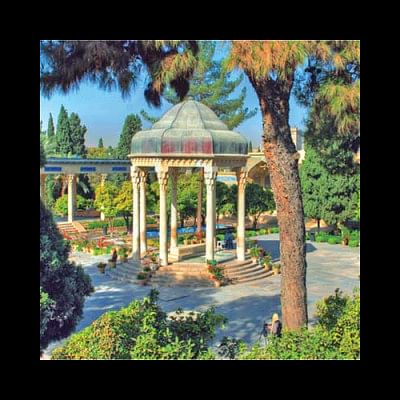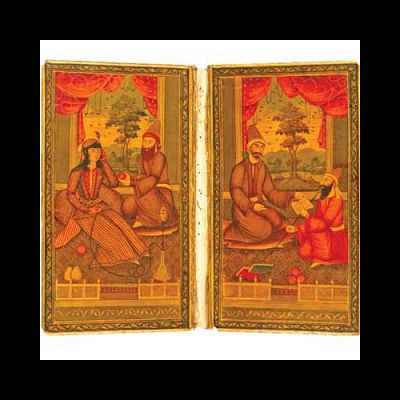The Persian candy

The independent sultanate of Bengal was 200 years (roughly 1338-1538) of glory. Trade and commerce flourished. Muslin enjoyed an immense fame. Travellers who visited Sonargaon, an extremely vital city during the period, were awed by its splendour. Arts and literature thrived.
One of the greatest patrons was Sultan Ghiyasuddin Azam Shah. Legend speaks of the brutality and ambition with which he overtook his father's throne. Despite that, he came to be known as a benevolent ruler. Sultan Ghiyasuddin's influence went way beyond Bengal.
A testament to that lies in a Persian poem, written by none other than the legendary Hafiz of Shiraz.
Khwaja Muhammad Shamsuddin Hafiz Shirazi was a mystic and romantic poet. Till today, he is one of the ambassadors of Persian literature. His tomb in Shiraz is a tourist destination.
Sultan Ghiyasuddin once composed the first line of a poem and gave it to the poets at his disposal to complete it. But when none of them impressed him, the line was sent to the great Hafiz (along with Muslins as imperial gifts). The poet was in fact invited to Bengal, but most probably the long and arduous voyage had deterred him. Nevertheless, he completed the poem and sent it to Bengal:

Saki! The cypress, rose, and tulip our gay discourse inspire:
With brimming cups that thrice are emptied, the topic fails to tire.
How happy in their sugar-pecking these Indian Parrots all,
Who banquet on this Persian candy transmitted to Bengal!
Behold how times and climes are traversed, when Song pursues her flight,
For on a year-long journey ventures this infant born to-night!
At the first reading, the poem appears to be describing the beauty and grandeur – with flowers and parrots and so on – of the sultan's court. Dig deeper and a more profound meaning emerges: the poem has a back story to it.

The sultan had once fallen grievously ill. It might have been the end of him. In those times, three of his favourite concubines had nursed him with the utmost devotion. Ghiyasuddin used to affectionately call them Cypress, Rose and Tulip. The three used to wash his body during his illness.
Fortunately, Ghiyasuddin survived the malady and consequently, to the envy of the other women of his court, the three ladies were in a superior state.
The cypress, rose, and tulip in the poem are in fact the three women. Hafiz, being the creative and divinely inspired genius he was, had used metaphors and symbols.
'Indian Parrots' are the poets of Ghiyasuddin, and the 'Persian candy' is nothing but the Persian poem itself! It is also referred to as the 'Song' and the 'infant': the work had to travel much across the world ('times and climes') to reach Bengal.
Lavish in his praises and humbled by the sultan, Hafiz of Shiraz had produced a work that reflects the glory of the Bengal sultanate.
O HAFIZ! For the love thou bearest!
Sultan Ghiyas ud-Din,
Break silence; for complaining only
Can make thy lot serene.
This version of translation has been written by Herman Bicknell. The poem is much longer, and is available online.

 For all latest news, follow The Daily Star's Google News channel.
For all latest news, follow The Daily Star's Google News channel. 



Comments